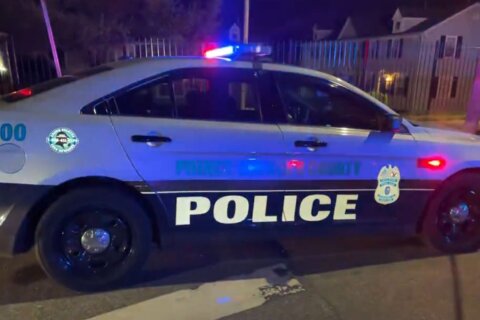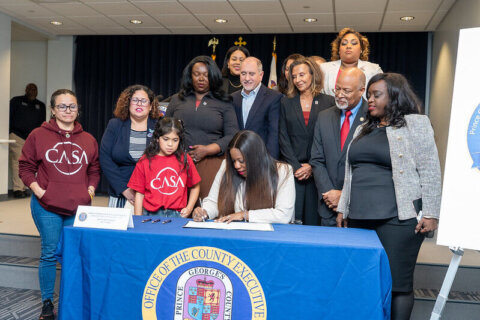
An emergency grant program was launched in Prince George’s County, Maryland, on Thursday, allowing small businesses to apply for short-term relief grants of between $1,000 and $3,000.
“So many of our smallest businesses, particularly owned by residents of color, have been devastated,” said County Council member Mel Franklin.
The program is open to businesses with at most 10 employees and less than $250,000 in annual revenue.
“These entrepreneurs need our help,” Franklin said. “They are the life blood of our economy, and essential to job and wealth creation for our communities.”
Organizers have at least $20,000 available in the fund to start with, but they are hoping for donations so they can keep the program going indefinitely.
The project was put together by the PFC Black Chamber, an advocacy group focused on Black-owned businesses in the county.
“It’s important we focus on our small Black businesses and provide them with some relief,” said the group’s president, Jerry McLaurin.
McLaurin said his goal is to “strengthen the capacity of Black businesses to serve their communities by providing a collective voice, fair access to capital and leadership support.”
State and local leaders across Maryland have been searching for ways to prop up business owners financially until the worst of the COVID-19 pandemic passes and businesses can start generating a profit once again.
In late October, Gov. Larry Hogan announced that the state was doubling its economic recovery and relief efforts for small businesses by tapping into the state’s rainy day fund.
Maryland had already allocated about $250 million for COVID-19 relief. The additional $250 million included $50 million for the state’s small business relief fund, and $50 million specifically for restaurants to expand outdoor dining in the winter months by buying tents and heaters, and making HVAC improvements.
Hogan said small businesses are facing a “desperate situation,” with some “hanging on by a thread.”
Though Maryland’s economy has rebounded faster than the nation as a whole, “it’s still really bad,” Hogan added. “It’s not a great situation.”









